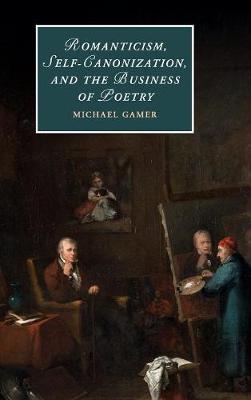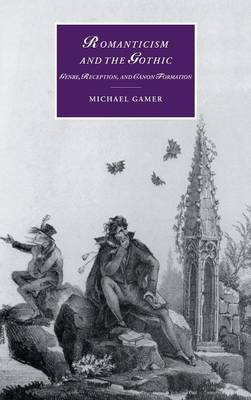Cambridge Studies in Romanticism
2 total works
Romanticism, Self-Canonization, and the Business of Poetry
by Michael Gamer
Published 17 February 2017
This is the first book to examine how Romantic writers transformed poetic collections to reach new audiences. In a series of case studies, Michael Gamer shows Romantic poets to be fundamentally social authors: working closely with booksellers, intimately involved in literary production, and resolutely concerned with current readers even as they presented themselves as disinterested artists writing for posterity. Exploding the myth of Romantic poets as naive, unworldly, or unconcerned with the practical aspects of literary production, this study shows them instead to be engaged with intellectual property, profit and loss, and the power of reprinting to reshape literary reputation. Gamer offers a fresh perspective on how we think about poetic revision, placing it between aesthetic and economic registers and foregrounding the centrality of poetic collections rather than individual poems to the construction of literary careers.
This is the first full-length study to examine the links between high Romantic literature and what has often been thought of as a merely popular genre - the Gothic. Michael Gamer offers a sharply focused analysis of how and why Romantic writers drew on Gothic conventions whilst, at the same time, denying their influence in order to claim critical respectability. He shows how the reception of Gothic literature, including its institutional and commercial recognition as a form of literature, played a fundamental role in the development of Romanticism as an ideology. In doing so he examines the early history of the Romantic movement and its assumptions about literary value, and the politics of reading, writing and reception at the end of the eighteenth century. As a whole the book makes an original contribution to our understanding of genre, tracing the impact of reception, marketing and audience on its formation.

